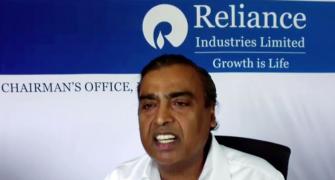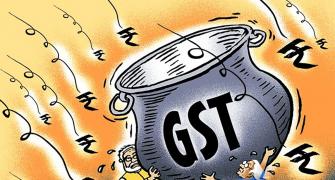With the sharp increase in instances of stock price manipulation and frauds, the Bombay Stock Exchange has revised the penalty imposed on its members by the surveillance and supervision department. These norms, effective April 1, will be based on the history of violations by the members.
In a notice sent to all its members on March 20, BSE has listed nine types of violation for which penalty norms have been revised. These are circular trading, fictitious trading, creating artificial volumes, price manipulation (rigging), manipulation of order book, placing of orders at unrealistic prices when circuit filters are open, placing orders that result in rogue trades, late submissions of details or submission of wrong information and net sellers who fail to deliver shares towards sale obligations.
The exchange had come under severe criticism after a couple of penny stocks -- KGN Industries and Shylp Technologies -- shot up on the first day of commencement in their trading after the suspension period. Nearly 800 stock brokers in the country were held responsible for a near 100,000 per cent rise in prices of these stocks in a single trading session, which was done by quoting artificial prices.
With respect to building the history of violations by members, a penalty structure was devised, under which every warning issued to members by the exchange would fall into four categories of penalty. The earlier structure envisaged penalty based on points accumulated by members for violation.
According to the new structure, a warning will be issued in the first instance if the matter is trivial, but penalties for the second and third instances of similar violation will be Rs 25,000 and Rs 50,000, respectively. The fourth instance will attract penalty of Rs 1,00,000, which will be treated as suspended penalty.
The suspended penalty amount will be collected from the trading member and retained by the exchange for a period of six months, after which it will verify if there was repetition of such violation. The exchange will then decide the issue of refunding full or part amount of penalty.
If the trading member has a history of violations during the past three financial years, a penalty of Rs 25,000 will be imposed for the first instance. The amount will double for the third and fourth violations.
However, if similar violation is found yet again, than the matter will be referred to the Defaulter's & Disciplinary Action Committee of the exchange, which can also take up the matter with the Securities and Exchange Board of India.
According to the exchange, if the magnitude of the violation is big and demands further severe action, the matter will be directly referred to DDAC with approval from the managing director and chief executive officer of the exchange.
The history of the violation will be based on instances, which will be maintained for any financial year. It will be considered on the basis of any violation of the same nature occurred during the last three financial years.
For example, if a trading member was warned/penalised during any one of the three financial years from the current violation, the first instance will attract penalty whereas trading members having no history will only be issued a warning for the first instance of violation.








